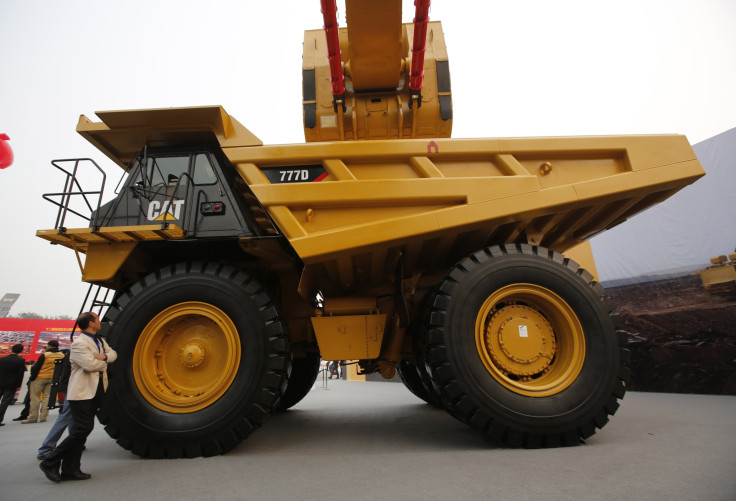Caterpillar, Health Stocks Send Wall Street Lower

By Sinead Carew
NEW YORK (Reuters) -- U.S. stocks closed lower on Thursday in a volatile session on uncertainty about U.S. monetary policy and global economic growth, while market heavyweight Caterpillar cut in its sales forecast and healthcare investors fled for the exits.
Six of the 10 major S&P sectors were lower, with the health sector's 1 percent fall leading the S&P declines and the Nasdaq biotech sector down 2 percent. Both healthcare indexes had their fifth straight day of losses.
While the broader market pared losses somewhat in the afternoon, investors were cautious ahead of a speech by Federal Reserve Chairwoman Janet Yellen, which could provide clues regarding the timing of an increase in U.S. interest rates.
Yellen, due to deliver an inflation speech at 5 p.m. EDT, had cited concerns about slowing global growth as a key reason for holding off from a long-anticipated Fed rate hike last Thursday.
Several investment strategists said on Thursday that the market is on its way to retesting the lows of Aug. 24, when shares tanked due to a panic about slowing growth in China.
"From a technical point of view, you have to test that low. Whether it's issues abroad or not being so sure about what's going on here in the U.S. with rates, we need to go lower," said Jeffrey Frankel, co-president of Stuart Frankel & Co in New York.
Almost 7.7 billion shares changed hands on U.S. exchanges, above the average of 7.5 billion in the previous 20 sessions according to Thomson Reuters data.
Shares in Caterpillar, the world's biggest mining and construction equipment maker, closed down 6.3 percent at $65.80, making it the biggest drag on the Dow and the third-biggest weight on the S&P 500. Caterpillar said it could cut up to 10,000 jobs as it faces challenging conditions in key regions and the mining and energy sector.
"The (Caterpillar) news is not helping matters, it's emblematic of a weaker globaleconomy," said Joseph Quinlan, chief market strategist for U.S. Trust, in New York.
The Dow Jones industrial average fell 78.57 points, or 0.48 percent, to 16,201.32, the S&P 500 .SPX lost 6.52 points, or 0.34 percent, to 1,932.24 and the Nasdaq Composite dropped 18.27 points, or 0.38 percent, to 4,734.48.
The CBOE Volatility index, known as Wall Street's "fear gauge," settled up 6 percent at 23.47, compared with its long-term average of 20.
Gilead Sciences Inc was the biggest drag on the S&P 500. Healthcare stocks have been under pressure since Hillary Clinton, the leading U.S. Democratic presidential candidate, vowed earlier this week to stop "price gouging" by drug companies.
Utilities were the strongest sector with a 0.8 percent rise, while the energy index eked out a 0.4 percent gain. U.S. crude oil settled higher in what was also a volatile day for the commodity.
A gauge of U.S. business investment plans fell slightly in August, jobless claims barely rose last week, and new single-family home sales rose more quickly than expected in August.
NYSE declining issues outnumbered advancers on the NYSE by 1,816 to 1,235, for a 1.47-to-1 ratio; on the Nasdaq, 1,529 issues fell and 1,244 advanced, for a 1.23-to-1 ratio favoring decliners.
The S&P 500 posted no new 52-week highs and 69 new lows; the Nasdaq recorded 25 new highs and 184 new lows.
(Additional reporting By Tanya Agrawal in Bengaluru; Editing by Bernadette Baum and Nick Zieminski)
© Copyright Thomson Reuters 2024. All rights reserved.




















